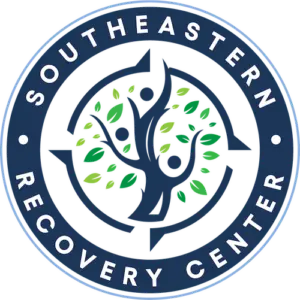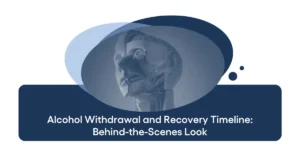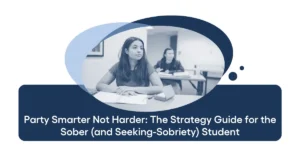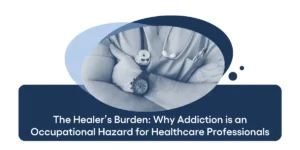There is a legal process in North Carolina that permits forcing a loved one into rehab if they meet specific criteria.
Watching a loved one struggle with addiction can be hard – being unable to help them can be even harder.
Between 2000 and 2022, more than 37,000 North Carolina residents overdosed, losing the battle of drug addiction. In 2022, nearly 12 residents died daily due to drug overdoses.
While these numbers are alarming, the number of loved ones left behind to experience the loss is exponentially higher.
With these statistics, the question is often asked, “Can you force someone into rehab?” In North Carolina, there is a legal process that allows you to force someone into rehab for mental health, alcohol, and substance use reasons if you believe that they are a danger to themselves or someone else. The process is called “involuntary commitment” but requires specific steps to be followed to ensure the commitment is ethical.

What is Involuntary Commitment in North Carolina?
Involuntary commitment is a legal process used to compel a person to undergo psychiatric evaluation and treatment without their consent, based on criteria that typically involve the individual posing a danger to themselves or others due to mental illness or substance abuse.
State laws govern the process and involve several steps to protect the individual’s rights while addressing the need for treatment in cases where they cannot seek help voluntarily.
Involuntary Commitment Process in North Carolina
The general process for involuntary commitment in North Carolina involves:
- Petition: A concerned individual, often a family member, law enforcement officer, or healthcare provider, must file a petition with the court stating the reasons they believe the person requires treatment. This petition must provide evidence that the individual is mentally ill or substance dependent and poses a danger.
- Examination: After the petition is filed, a magistrate may order a preliminary examination by a physician or eligible psychologist. The professional can recommend further action if they find evidence supporting the claim.
- Hearing: A court hearing is then scheduled, typically within a short timeframe, where evidence is presented. The individual in question has the right to be represented by an attorney. If the individual cannot afford one, the court will provide one.
- Determination: If the judge finds clear, convincing evidence that the individual meets the criteria for involuntary commitment, they can order treatment at a designated facility. The length and specifics of treatment depend on the individual’s condition and progress.
Review and Release: The commitment is subject to periodic review, and the individual can be released if they no longer meet the criteria for involuntary commitment.
A pictorial diagram of the process can be found on the North Carolina Department of Health and Human Services website.
Does Forcing Rehab on a Loved One Work?
The effectiveness of forcing a loved one into rehab for substance use disorders is a topic of ongoing debate among researchers, healthcare professionals, and policymakers. The outcomes of forced rehab can vary depending on several factors, including the individual’s specific circumstances, the type of substance use disorder, the quality and approach of the rehab program, and the level of post-treatment support. Here are some key points to consider:
- Mixed Evidence: Research on the effectiveness of forced rehab has yielded mixed results. Some studies suggest that individuals who are compelled to enter rehab by the legal system or through family intervention can achieve outcomes similar to those who enter treatment voluntarily, especially if the treatment programs are of high quality and are followed by ongoing support. However, other research indicates that voluntary treatment is more effective in promoting long-term recovery.
- Motivation and Engagement: A crucial factor in the success of any rehab program is the individual’s motivation to change and their active engagement in the treatment process. Involuntary treatment might initially lack this personal motivation, but it can develop over time as individuals progress through the program and start to see improvements in their lives.
- Quality of the Program: The effectiveness of forced rehab also heavily depends on the quality of the program, including the use of evidence-based treatment methods, the availability of personalized treatment plans, and the competence of the staff. High-quality programs that address the psychological, social, and behavioral aspects of addiction are more likely to be successful.
- Follow-Up Care: Long-term follow-up care and support, such as outpatient therapy, support groups, and access to community resources, are critical for maintaining sobriety after leaving rehab. The presence of a strong support network can significantly impact the success rate of any treatment, whether voluntary or involuntary.
- Legal and Ethical Considerations: The use of forced rehab raises important legal and ethical questions about individual rights and the most effective approaches to treating substance use disorders. It’s crucial to balance the need to protect individuals and the public with respecting personal freedoms and promoting voluntary treatment options.
Forced rehab may work for some individuals, especially if the treatment is high quality, includes post-treatment support, and if the person eventually finds personal motivation for recovery.
However, most people favor voluntary treatment, where possible, as the most desirable option due to the importance of having a personal commitment to the recovery process.
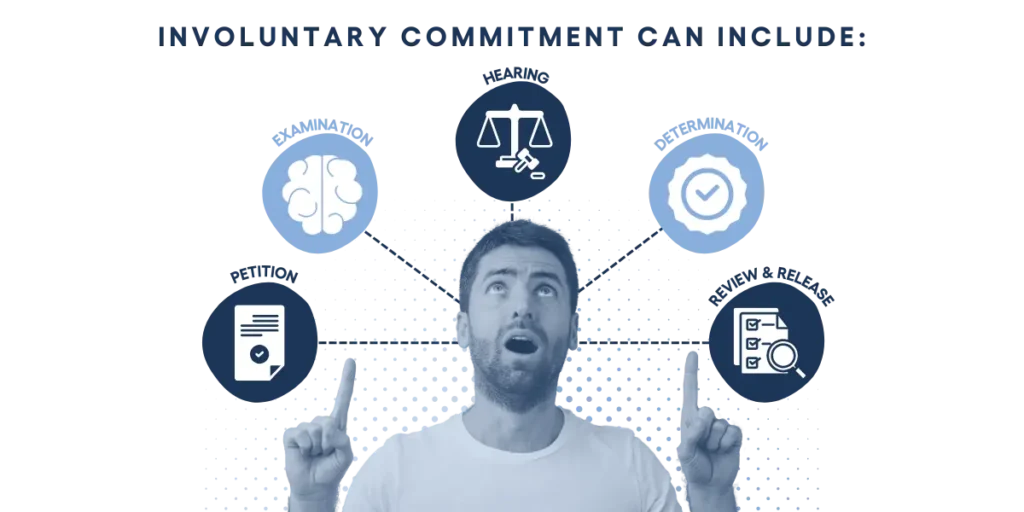
How to Have a Conversation About Rehab with a Loved One
Having a conversation with a loved one about considering rehab can be challenging. It requires sensitivity, understanding, and preparation – given the complexities surrounding substance use disorders. Here are steps and tips to approach this delicate conversation effectively:
1. Educate Yourself: Before initiating the conversation, learn about substance use disorders and treatment options. Understanding the challenges, treatments, and recovery process can help you communicate more effectively and empathetically.
2. Choose the Right Time and Place: Find a quiet, private setting where you can talk without interruptions. Ensure your loved one is sober and in a relatively calm state of mind. Avoid times of high stress or emotional turmoil.
Express Concern Without Judgment: Start the conversation from a place of concern rather than accusation. Use “I” statements to express how you feel and what you’ve observed without making the person feel judged or attacked. For example, “I’ve noticed you’ve been struggling lately, and I’m really worried about you.”
4. Be Prepared for Resistance: It’s common for individuals struggling with substance use to be in denial about their situation or to react defensively. Prepare yourself emotionally to face denial, anger, or accusations without retaliating or escalating the situation.
5. Listen and Offer Support: Give your loved one space to share their thoughts and feelings. Listen actively and empathetically, showing that you are there to support, not to control or coerce.
6. Provide Information, Not Ultimatums: Offer information about rehab options and the benefits of treatment, but avoid presenting it as an ultimatum unless it’s a last resort. People are more likely to be receptive if they feel they are making the choice themselves.
7. Offer to Help: Make it clear that you’re willing to support them through the process, whether by helping research treatment options, accompanying them to appointments, or simply being there to talk.
8. Follow-up: One conversation may not lead to immediate action, and that’s okay. Keep the lines of communication open and continue to offer support. Show that your concern is ongoing and that you’re committed to being there for them.
9. Consider an Intervention: If direct conversations are ineffective and you’re genuinely concerned for your loved one’s safety, consider organizing an intervention. It’s often helpful to consult with a professional who can guide the process and ensure it’s conducted in a supportive and non-confrontational manner.
If you need help approaching the conversation about rehab with your loved one or need help determining if forcing rehab on them is the right approach, Southeastern Recovery Center can help. We are committed to helping individuals reach their sobriety goals – the first step is making a call.
